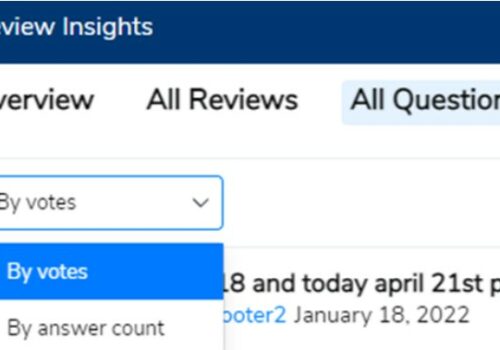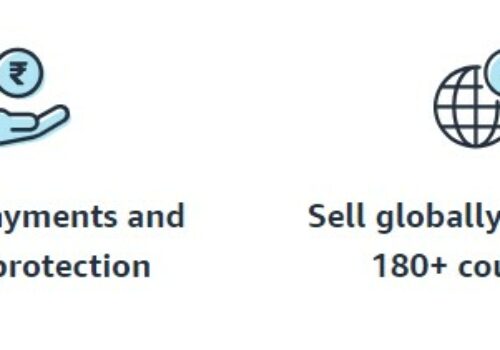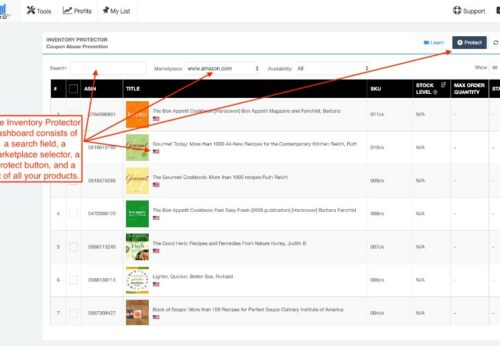Being an Amazon seller is a very attractive business prospect. You get to sell your product on the world’s biggest marketplace and you don’t have to worry about handling, shipping or overhead.
You just need to focus on doing everything you can to sell your products and make sure you have enough of them in stock to ensure consistency. The best part is that it’s very easy to get started.
- Detailed Egrow Review
- Detailed eComEngine Review
- Best Helium 10 Alternatives
- Scanlister Review
- Zonguru Review
Here are 10 steps you can take to go from beginner to successfully sell products on Amazon.
10 Easy Steps To Become An Amazon Seller In 2025: Step By Step Guide
Step 1: Get Some Product Ideas
Of course, the first thing you need to determine is what exactly you are going to be selling. This is a very crucial part of the process since it is the very foundation of your success on Amazon.
If you do everything right after this step, you could still fail if you don’t choose a product that has a chance of selling well. There are a number of ways to go about choosing your products.
You can simply browse Amazon and try to discern with your own perceptive skills which product is doing well and which type of product you might be able to source and launch on the platform.
That’s a perfectly valid way of approaching the process. However, since this is such a crucial step you might want to use software to swing the odds in your favour.
A software tool, like the AMZScout PRO extension for Chrome, is a great tool specifically designed to give you all of the possible information you might need to know in order to choose a product. The way it works is really simple.
You simply turn on the extension when you browse Amazon and you will find all of the information laid out in front of you.
With the AMZScout PRO extension, you can see exactly how many units a month are being sold per product, their sales history, the trends surrounding them, and cost margins, as well as a score that tells you how competitive that niche is. This particular tool can also give you new niche ideas.
There is also another kind of tool, such as the AMZScout Product Database, that will allow you to put in your own criteria and filter out the products that meet them. It scans every product that is being sold on Amazon and lays out exactly what you need.
Step 2: Narrow Down Your Choices Using Criteria
Whatever your personal idea of what you should be selling might be, there are some general guidelines that you should follow as a first-time seller to make it easier on yourself.
Since you will be finding a lot of product ideas by using these tools, you will need to filter them in order to pick your number 1 product candidate to launch on Amazon.
For the first time sellers, it’s best to follow the following guidelines:
- Don’t sell anything that’s too big or heavy – Even though large products tend to sell for higher prices, they are more expensive in terms of shipping and fees. This makes them a more risky product.
- Don’t sell anything with moving parts – As an inexperienced seller, you don’t want to sell anything that’s electrical or mechanical in nature. Also, make sure to avoid anything that’s too delicate or fragile. Products like these are definitely appealing to buyers, but new sellers don’t really know how to handle quality control and proper packaging. You should aim for your first product to be compact, simple, and difficult to damage.Choose a product in the $20 to $40 price range – This is the perfect pricing sweet spot. Pricing a product above the $20 will mean that your fees will be reasonable enough in proportion to your product profit, even if you are ordering lower quantities.
- Sell something you can customize – It’s a good idea to sell something that’s already doing well on Amazon. However, you need to put your own spin on it. Pick products that can be customized in terms of colour, pattern, material, or features to create a product that’s new and that has some sort of competitive advantage.
When it comes to comparing your findings in terms of product ideas, there is a tool called the AMZScout Product Tracker that serves as a sort of “idea vault” for your potential new products.
It also synergizes with all of the other tools. This way you can see your product ideas side by side and compare them using all the information available about them.
Step 3: Start Contacting Suppliers
Once you narrow down your choice to only 1 or a handful of products, it’s time to move on to finding someone that can make them for you. The best place to go is Alibaba.com, but there are other options as well.
When it comes to approaching suppliers you need to ask for the following information from them:
- Can they customize the product to your specifications?
- How much would your initial order cost?
- How much would it cost to send a sample to you?
- How do orders of higher volume affect the price per unit?
- How does the shipping method affect the price per unit?
The point is to find out not only if they can make the actual products, but how much you can expect to pay per product unit in the future.
Remember, the supplier you pick should be a long term business relationship, and figuring out what you can expect as you grow is very important to discover right from the start.
Step 4: Order a Sample
Once you believe you have found the right supplier to make your product exactly the way you want it for the right price, it’s time to find out if that’s really the case.
This is why you order a prototype or a sample. Most suppliers will give you a sample for free. Really, this means that they will charge you for it, however, they would deduct the price of the sample from your initial order. This is something you ask about as you are negotiating with them.
Step 5: Test Your Sample
Once you receive the sample, the first thing you need to do is to find out if it’s truly built to your specifications. After that, you need to stress test it. It can be something as simple as throwing it around, kicking it or trying to break or tear it up.
If your product is something that can be washed in the washing machine or ironed with a clothing iron, you should do that as well. The point is for you to figure out if it’s the level of quality that you require. You can discover that by overusing it for a short period of time.
Step 6: Create your Amazon account
If you are happy with your sample, that means you have found your product! It’s time to officially get into the Amazon FBA system. The process is pretty straightforward and the only thing that you should have ready are the bank accounts that Amazon can use, both to charge you, and to deposit your earnings.
This might require you to do a bit of research on your own depending on where you live and on which market you intend to sell.
Step 7: Add Your Product To Your Account
This is also a very simple process. You simply pick out the proper category for your product, enter the price, and add some basic details for your listing. You will need a unique identifier such as a barcode or a UPC code in order to add the product.
It only takes seconds online to get a code, and you can get one for as cheap as $5. When it comes to the listing you create, you can just enter anything in there, since the listing won’t be active or visible until the inventory comes in.
Step 8- Order Your First Batch of Items
In order for you to make your first order, you will need to create a shipping plan in your Amazon Seller Central account. This is why the previous step was to add the product to your account. Having the product listed is necessary for the shipping plan.
The shipping plan will tell you exactly where you need to send your inventory. This is how FBA works. You send your product inventory into your designated Amazon FBA warehouse and you let Amazon take it from there.
Step 9- Create Your Listing
While you are waiting for your initial order to arrive at the FBA warehouse, you have plenty of time to construct your listing. You will need to obtain high-quality product photos.
It’s best to hire a photographer for this. You will also need to write your listing copy, the title, the bulletins, and the product description.
It’s important to see both the images and the text in the listing to present the strengths of your product. It’s also essential to include the correct keywords in order to properly position your listing according to the Amazon SEO. Getting these keywords is also something you can do using the AMZScout PRO Extension.
It takes a bit of skill to balance writing the most compelling text for your listing while you also include the right keywords.
Luckily, you will have plenty of time to figure this out from the time you order your initial batch to be manufactured until it’s loaded into your Amazon FBA warehouse
Step 10- Start Selling Now
Once your first product order reaches the warehouse, your Amazon listing becomes active and people can shop with you. Now you can start to work on Amazon’s PPC ads to raise your organic rankings and give your product more online exposure.
As you can see, becoming a seller on Amazon is not very difficult and many people have done it already. It doesn’t even take that much time or money.
You can start your own Amazon business with as little as a few hundred dollars and you can start selling within weeks if you are using software tools to expedite the process of finding and identifying the product you wish to sell. Good luck seller!
Quick Links:
- 10+ Best Amazon Listing Optimization Service
- eComEngine Review: One Stop Solution for Amazon Sellers?
- Gorilla ROI Review: Is This Add-On Worth For Amazon Sellers?
- Quantify Review: Best Amazon Seller Pricing Software(9 Stars)
Conclusion: How To Become An Amazon Seller In Easy Steps 2025
You have learned the best and easy steps to become an Amazon FBA seller. The end result of this is that you can easily jump tp number one.
Once you jump up on page one, you will be able to make sales and eventually more customers will look for you as the preferred seller.
We hope this suits your purpose well. If this post helped you feel free to share it on social media channels such as Facebook, Twitter, and LinkedIn.















